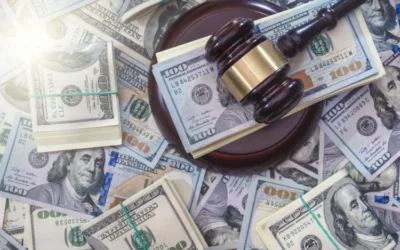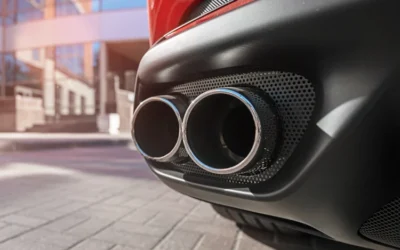Understanding LIDAR Speeding Tickets In Arizona
You may have found this page because you just got a speeding ticket and the officer used LIDAR to measure your speed. LIDAR is a common tool in traffic enforcement in Arizona and it is often perceived as being very precise, particularly by the courts.
Traffic Law Guys takes speeding tickets seriously. That’s why we have our own LIDAR unit – so we can study its operation first-hand and understand the ins and outs of LIDAR speed measurement. (We have a moving radar unit just like the police too, but that’s a different post).
This post covers:
-
- How LIDAR works
- Potential issues with LIDAR
- Court perceptions of LIDAR
- Common questions regarding LIDAR
If you have received a criminal speeding ticket where your speed was measure by LIDAR, give us a call for a free consultation to discuss contesting your ticket.
How LIDAR works
What is LIDAR?
LIDAR stands for Light Detection and Ranging. It is a laser-based technology used to measure the speed and distance of an object – a vehicle for purposes of this discussion.
How does LIDAR measure speed
A LIDAR gun emits narrow pulses of infrared light (in other words, a laser) that bounce off a vehicle and return to the device. Law enforcement tries to aim for a reflective surface on a car like license plates or headlights.
The LIDAR device calculates the speed of the vehicle as well as the distance from the LIDAR operator by measuring the time it takes for the laser pulses to return, using the constant speed of light for precision. Multiple pulses are tekn in less than half a second to compute speed.
Advantages for Law Enforcement
Police appreciate LIDAR’s high accuracy (within 1-2 mph), the ability to operate from long distances (up to 4,000 feet in some cases), and with newer units, the ability to capture an image of the vehicle for court evidence.
Potential Issues with LIDAR in Speed Measurement
Calibration Errors
In some states, a LIDAR unit must be regularly calibrated. This is not the case in Arizona. There is no requirement for regular calibration in Arizona. Most law enforcement agencies never have their LIDAR units calibrated aside from the calibration performed by the manufacturer.
Any police officer using LIDAR in Arizona will testify that they turned on their LIDAR device and it performed an “internal test” to make sure it was operating correctly. Then the police officer will testify that they ranged (measured the distance) of some object wherein they already knew the distance to confirm that the LIDAR unit is measuring distance correctly. That’s the extent of the calibration in Arizona.
Environmental Factors
Weather conditions like rain, fog or snow can refract laser beams causing erratic errors. Airborne particles such as smoke or dust, or reflective surfaces like shiny vehicle parts can distort measurement.
Operator Error
Police Officers must aim LIDAR precisely, requiring a steady hand or tripod. “Sweep errors” occur if the gun moves while targeting, potentially clocking the wrong vehicle.
Arizona does require police officers using LIDAR to be certified to use the device.
Mechanical Interference
External factors like air conditioning fans in patrol cars or nearby electronic devices can interfere with readings, as seen in a Pennsylvania case where a rock was clocked at 70 mph.
Evidentiary Requirements
Police officers must present proof of training and certification to admit LIDAR evidence. Failure to provide these can lead to dismissal. This is extremely rare.
Challenging LIDAR in Court
Defenses focus on training or environmental conditions rather than the technology’s scientific basis, as courts universally believe in the reliability of LIDAR.
Traffic Law Guys’ Experience Using LIDAR
In our experience using the Traffic Law Guys’ LIDAR gun, it can be challenging to aim at a moving car, and this gets more challenging the further away the car is. If there are other cars around the car you are trying to measure, it could be difficult to maintain aim on a single car, again especially as the distance increases. This is why police officers typically testify that there were no other vehicles immediately around the vehicle they claim to have measured.
Regarding the 70 mph rock or 300 mph stop sigh, it has been Traffic Law Guys’ experience that our LIDAR gun will not return a speed unless the object we are measuring is in motion.
Frequently Asked Questions about LIDAR speeding tickets
1. How accurate is LIDAR compared to radar?
LIDAR is more accurate due to its narrow beam which targets a specific vehicle with a margin of error of 1-2 mph, compared to radar’s broader beam and potential for interference. Radar casts a very wide beam and simply returns a speed for the fastest moving object in its path. The officer has to guess what that object is.
2. Can I see the LIDAR reading when pulled over?
Maybe.
Officers are not required to show this to you in Arizona. Some officers will, some will not. Some officers will take a picture of the LIDAR readout which can be presented as evidence. Of course, there is no way to know if that LIDAR reading is from YOUR car, or some OTHER car from some earlier time.
3. What are common defenses against a LIDAR ticket?
Defenses could include a lack of proper certification for the police officer, weather interference or targeting errors.
4. Can weather affect LIDAR accuracy?
Yes. Rain, fog, or smoke can refract the laser leading to inaccurate readings. Unfortunately for defense attorneys, we don’t often see these weather conditions in Arizona.
5. Should I fight a LIDAR speeding ticket?
Maybe.
If you got a civil speeding ticket, just take defensive driving school to get it dismissed. If you can’t take defensive driving school, your only chance of success at a civil traffic hearing is if the police officer fails to show up. Otherwise, you will lose. See our post about the low burden of proof at civil traffic hearings.
If you have a criminal speeding ticket, that is a different conversation. That’s when it’s time to talk to an attorney about challenging the ticket.
Need help with a ticket?
Latest Blog Posts
District Court Violation Notices and Collateral Forfeiture
What Is A District Court Violation Notice? And What Is Collateral Forfeiture?What Is A United States District Court Violation Notice? The federal government calls traffic tickets Violation Notices. At the top of the ticket, it will say "United States District Court...
Can you get a ticket in Arizona for driving a loud car?
Can you get a ticket in Arizona for driving a loud car?Unfortunately, YES. In today’s nanny state, it is certainly possible to get a ticket for the sounds your car makes. We actually see this a lot. The severity of the tickets can range from an annoying no-points...
Chris Rike is a founding partner of Traffic Law Guys, an Arizona law firm committed to protecting the rights of drivers facing criminal traffic charges.




0 Comments